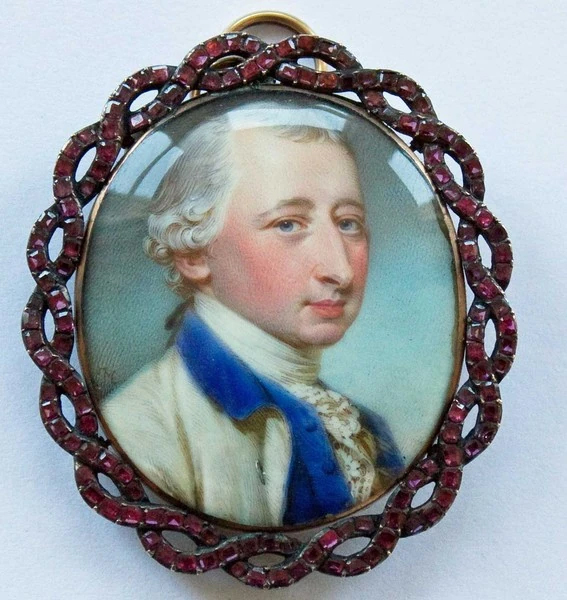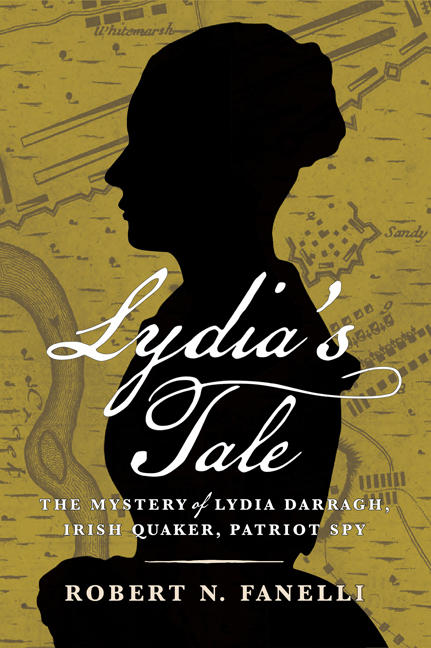About Gary G. Shattuck
Gary Shattuck served over three decades in the Vermont law enforcement community as a supervising officer with the Vermont State Police, an Assistant Attorney General and as an Assistant United States Attorney with the U.S. Department of Justice. He has also served as a legal advisor to governments in Kosovo and Iraq during those latest conflicts. An alumnus of the University of Colorado and magna cum laude graduate of the Vermont Law School, Gary also holds a Masters degree in Military History (with honors), concentrating on the Revolutionary War. He is the author of two books, Artful and Designing Men: The Trials of Job Shattuck and the Regulation of 1786-1787 (Tate Publishing, 2013) and Insurrection, Corruption and Murder in Early Vermont: Life on the Wild Northern Frontier (The History Press, 2014).
What inspired you to start researching and writing about the Revolution?
I was first exposed in a way that, at least, engaged my imagination, around 1974 when the John Jakes’ series The Kent Family Chronicles came out. His eight books were consumed quickly and I became forever hooked on the time period.
Somewhere along the line the thought of actually doing the work that I was reading about became of interest, but was sidelined because of a need to put food on the table. However, after leaving gainful employment I got interested in doing some genealogical research and then stumbled across some important, unknown information at the Massachusetts Historical Society about a relative who was a leader during the Shays Rebellion time period, and which convinced me that now was the time to take the leap. Other books then followed, together with a wonderful relationship with JAR; and the rest is history!
What historians or books have most influenced your work? Why?
I am very interested in the minutiae of the times, the things that form the micro-histories, and their value in explaining the hows and whys of larger events. In the law, this is an examination of causation and I find that there is so much to learn from that, that now that is where I am focusing my efforts.
So, I am naturally attracted to those researchers that don’t concentrate on the large events, the battles, etc., but on what were their hidden aspects revealing how they came about. On that, I particularly love the works of our recently departed Pauline Maier and would have given anything to meet her before her passing. Together with the wonderful works of Bernard Bailyn, Gordon Woods, Robert Gross and Fred Anderson, and legal historians Jack Greene, John Phillip Reid and Mary Sarah Bilder; these are the ones with whom I most enjoy spending time.
What are your go-to research resources?
I spend very little time with secondary sources unless they are citing primary documents or are authored by historians with an established reputation. My first stop is usually Google books, followed by Hathi Trust, Archive.org, Founders Online, and the Library of Congress. I also make extensive use of the state archives, the Vermont Historical Society and the University of Vermont Special Collections. Land records and local historical societies also provide a wealth of information. It also helps to be creative and I actually went through the archives of the state masonic organization looking at 200+ year old documents and which was very interesting.
Which of your own JAR articles is your favorite or most rewarding? Why?
I particularly enjoy looking at old chestnuts to see if their past descriptions pass muster based upon more recent investigation. Fortunately, I have found repeated instances where there have been inaccuracies (thank you to the nineteenth century historians sacrificing fact for ideology!) and which provide rich fodder for revision.
The research on Gen. Thomas Gage and the legal thicket he found himself in as he tried to both supervise Boston in 1775 while also mollifying the locals was an interesting exercise. I don’t think past accounts of him have been particularly kind, so trying to put into perspective the legal constraints he faced between 1774 and 1775 was most interesting. He wasn’t near the villain that some have tried to paint, but, rather, a legally bound-up bureaucrat trying to negotiate a difficult military challenge thousands of miles from home and with inadequate resources.
Other than your own contributions, what are some of your favorite JAR articles?
Just recently, Hershel Parker’s piece on the outrages committed by Tories in the south caught my eye and I think that those kinds of articles are desperately needed. Too many people have grown up with stars in their eyes over the escapades of the Patriots (or, if you were British, traitors) and I think it is an overblown estimation. Those articles that focus on the day-to-day challenges of colonists, acknowledging the very real, human aspects of their actions (both good and bad) are the ones that I most enjoy. I don’t think the critical audience really cares to hear more of the bravado that “Fourth of July” kinds of stories offer, but, rather, look to those that challenge their perceptions and engage their innate empathy.
What new research/writing projects are you currently working on?
I just finished my third book (for release by The History Press in June) describing Vermont’s first opium epidemic taking place in the nineteenth century. It was incredibly interesting pulling together all of the facets surrounding the medical, pharmaceutical, and legislative interests in order to get some understanding of why there was so much addiction in the state by 1900.
Recently, I completed my masters degree in military history, with a concentration on the Revolutionary War, and am now pursuing a second one in historical archaeology at the University of Leicester, United Kingdom, which has been an eye-opening experience. Many new and exciting tools are being revealed in executing historical inquiries and I expect to use them in future projects.
As a part of that, I have been deeply immersed in the coming of the railroad to Vermont in the late 1840s and the important contributions made by the Irish in providing the brawn to make it possible. So, for right now, my efforts are directed towards researching and writing the papers required for my courses and then completing a dissertation that will pull all of this railroad information together; this is proving to be a much more interesting project than I could have ever imagined.
Why is Journal of the American Revolution important to you?
The diversity of interests and wonderful stories coming from the many contributors seems never-ending and I know of no other place where one can indulge their interest in the Revolutionary War and come away with information that they will find no place else.
Is there an article, or subject area, that you would like to see appear in JAR?
It would be nice to see some articles that focused on the legal aspects of the war. Jack Greene and other legal scholars have made important contributions in our understanding of the reach of British rule into the colonies and I would like to see others consider taking up that kind of inquiry. It is really a rich source of information (court documents are amazing) as it provides a lot of the background to a highly litigious society explaining many of the obscure motivations lying behind the things they did.








8 Comments
Gary, great interview and I continue to really enjoy these Contributor Close-up articles; meeting historian/researchers as yourself and hearing about their specialties, inspirations and sources. Very enlightening!
Thanks, John. I agree, it really is quite a diverse group of people contributing to JAR and it is always interesting to learn more about them.
Mr. Shatttuck, Can you provide me with a source to purchase “Artful and Designing Men . .”? Job’s step brother, William, was my ancestor. So I am interested in all the info on Job. I have eight generations of Shattuck in my ancestry.
Thank you for any assistance.
Len Ray, lr********@gm***.com
We need more books about Vermont in the Revolution
, especially about Loyalists, and the organization of the Green mountain Boys as a regiment. Thank you for your work!!
Thank you, Craig. As a matter of fact, work is now underway with two other Vermont historians in what we believe will be an eye-opening rewrite of the state’s early days, to include a bit of the GMBs. Stay tuned, very exciting stuff!
Gary, interesting to hear more about you. I’d like to thank you for your advice and direction in helping me put an article together for the Journal after you read one of my comments on another article. I have submitted a piece and hope to have it up in the coming months. I could not, and would not, have done it without your encouragement.
Oh, and I like your preference in dogs – I have a Golden Retriever as well and they’re great dogs!
Thank you, Richard. I very much look forward to your article (and Slip says ‘hi’!)
i have 12 books about Vermont in the Revolution, with 3 on my wish list.That’s more than several other states in my library of 600 Revolutionary War books. If anything new comes out, please keep me posted. I think that the Journal of the American Revolution is the best thing out there. I eagerly look forward to its emails. Thanks again!